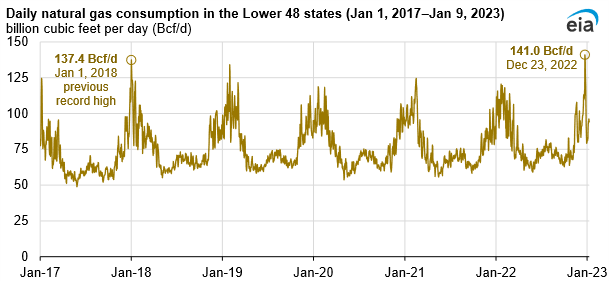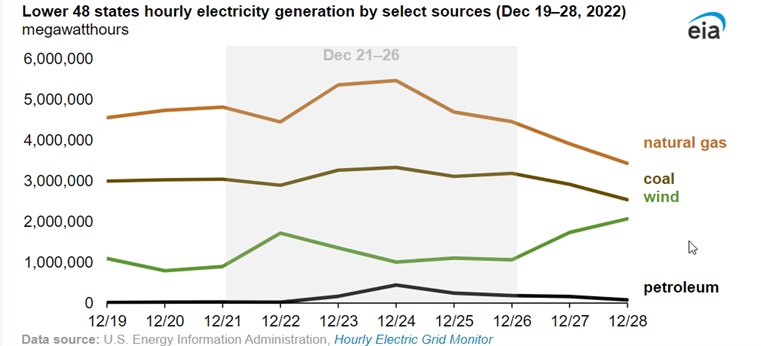Quick Facts
- Industry
- K-12
- Topics
- Watt's in the News

Will natural gas continue its downward trend in regard to electrical generation? Can renewable energy sources make up the difference at scale and be reliable/affordable in the process?

There have been a lot of articles published over the past month from a wide variety of sources expressing views on the "gas vs. electric stove" debate at the federal level. The use of natural gas, though, goes far beyond just cooking our food. Here is a series of articles that can be shared over the next two months as we take a look at energy transformation and resources that can help identify regional production/consumption data for a variety of energy sources.
All of these resources provide support for the upper level of the BTU Crew: "Module 5 - Energy Usage in Buildings." In addition, they serve as a great introduction to the lessons HS students can learn in NC3 Data Analytics Certification #1 - "Harnessing the Power of Data" and NC3 Data Analytics Certification #2 - "Energy & Sustainability with Data Analytics".

Meet Dan Whisler, Trane Educator in Residence

